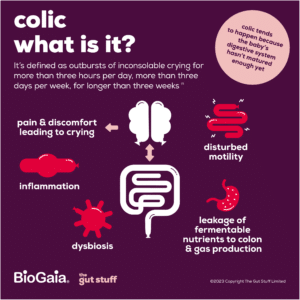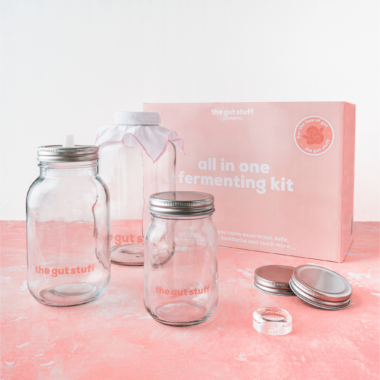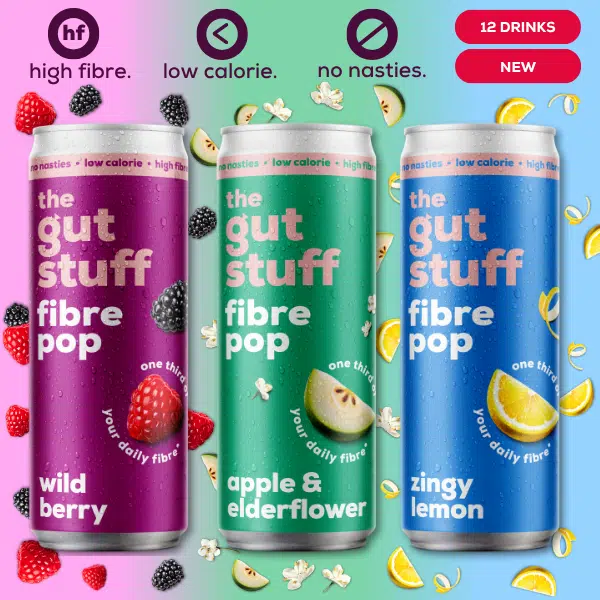
Colic
Colic in newborns can be a really stressful time for both mum and baby. 20% of babies are diagnosed with colic worldwide (1) and while it should get better by 3 to 4 months it can be a really distressing and worrisome time for parents.
so what is it?
Colic is defined as when the baby that is less than 5 months old, that’s otherwise healthy, and is crying a lot for prolonged periods of time (more than three hours a day for at least three days a week) and is hard to soothe (2). They can also arch their back and/or go red in the face. It is a benign condition that typically peaks at 5-6 weeks of age and tends to resolve itself by the time the baby is 5 months old. If you think your baby might have colic, it’s best to chat with your doctor and health visitor for support and advice.
why does it happen?
Colic tends to happen because the baby’s digestive system hasn’t matured enough yet, which is why it’s common in small and young babies. Despite a lot of research in this area, we still don’t quite know why it happens. Some can be related to milk allergies, that the baby can then grow out of. Your GP and health visitor will guide you through a number of strategies to help manage your baby’s colic, which might include mum cutting out dairy foods if still breastfeeding, or the baby going on to a dairy-free formula. This though doesn’t work for every baby, and as there isn’t a clear solution for colic yet this can be stressful and confusing for parents.
how is the gut linked?
There’s a growing body of evidence that suggests that the microbiome contributes to the development of colic (3). Babies with colic tend to have a different microbiome than babies who don’t have colic with lower levels of Lactobacillus in their first poo after birth (4). Food tends to move through the baby’s digestive system quicker in colic too, with more gas produced and increased low grade inflammation (6).

One potential additional treatment strategy for colic is probiotics (5). While the evidence is evolving, some probiotics have been shown to reduce how long the baby cries for (6) – and those extra few minutes in a day can feel huge for sleep deprived and stressed new parents. The bacteria strain L. reuteri DSM 17938 is effective for reducing crying time in breast-fed babies, but interestingly not formula fed (7) and the researchers weren’t able to clarify why. After a week of taking probiotics using a dropper, babies were crying on average around 20 minutes less a day. Other strains however haven’t been shown to be particularly effective.
references
- Sarasu JM, Narang M, Shah D. Infantile Colic: An Update. Indian Pediatr [Internet]. 2018 Nov 15 [cited 2023 Jul 26];55(11). Available from: https://pubmed.ncbi.nlm.nih.gov/29941700/
- Benninga MA, Faure C, Hyman PE, St James Roberts I, Schechter NL, Nurko S. Childhood Functional Gastrointestinal Disorders: Neonate/Toddler. Gastroenterology. 2016 Feb 15:S0016-5085(16)00182-7. doi: 10.1053/j.gastro.2016.02.016. Epub ahead of print. PMID: 27144631.\
- Zeevenhooven J, Browne PD, L’Hoir MP, de Weerth C, Benninga MA. Infant colic: mechanisms and management. Nat Rev Gastroenterol Hepatol. 2018 Aug;15(8):479-496. doi: 10.1038/s41575-018-0008-7. PMID: 29760502.
- Korpela K, Renko M, Paalanne N, Vänni P, Salo J, Tejesvi M, Koivusaari P, Pokka T, Kaukola T, Pirttilä AM, Tapiainen T. Microbiome of the first stool after birth and infantile colic. Pediatr Res. 2020 Nov;88(5):776-783. doi: 10.1038/s41390-020-0804-y. Epub 2020 Feb 13. PMID: 32053826.
- Shirazinia R, Golabchifar AA, Fazeli MR. Efficacy of probiotics for managing infantile colic due to their anti-inflammatory properties: a meta-analysis and systematic review. Clin Exp Pediatr. 2021 Dec;64(12):642-651. doi: 10.3345/cep.2020.01676. Epub 2021 Apr 12. PMID: 33848417; PMCID: PMC8650819.
- Ellwood J, Draper-Rodi J, Carnes DComparison of common interventions for the treatment of infantile colic: a systematic review of reviews and guidelinesBMJ Open 2020;10:e035405. doi: 10.1136/bmjopen-2019-035405
- Sung V, D’Amico F, Cabana MD, Chau K, Koren G, Savino F, Szajewska H, Deshpande G, Dupont C, Indrio F, Mentula S, Partty A, Tancredi D. Lactobacillus reuteri to Treat Infant Colic: A Meta-analysis. Pediatrics. 2018 Jan;141(1):e20171811. doi: 10.1542/peds.2017-1811. PMID: 29279326.




